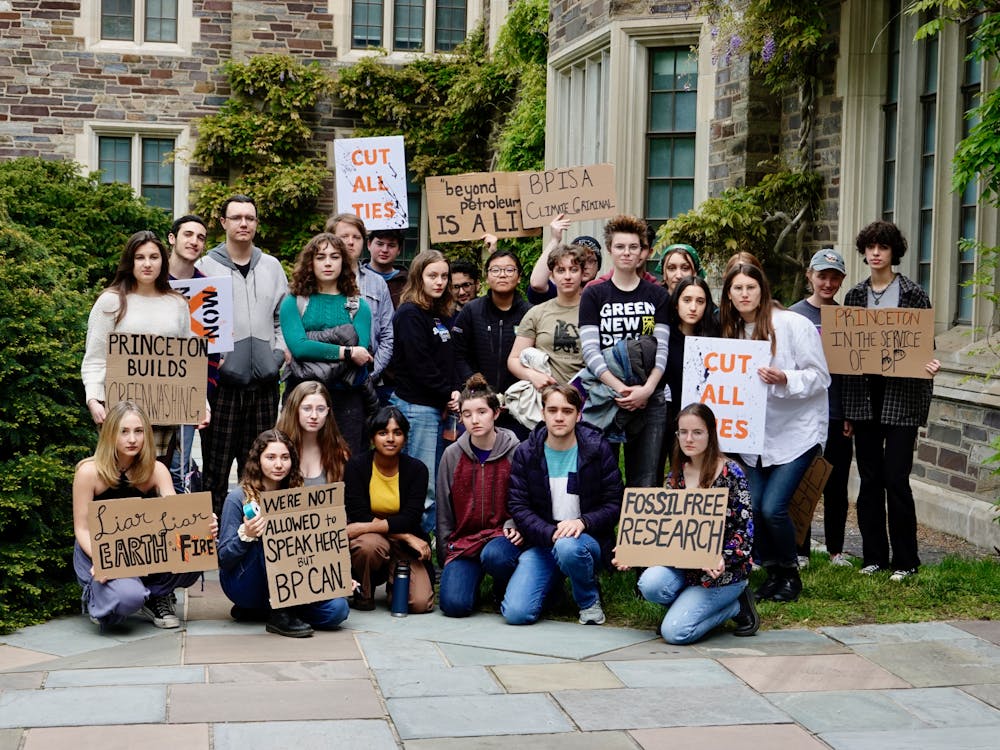Perhaps it has already happened: you pass someone who you vaguely remember from a Community Action barbeque, or someone whom your hallmate introduced you to during Frosh Week. You might not know the person’s name but you know she or he’s important and you know that at one point you may have shaken hands with him or her, that he or she was yet another potential connection to make during your years at Princeton. Maybe you were disappointed when this person instead took the easy way out, by avoiding eye contact until you were out of his or her field of vision. And there you have it, the staggering realization that not everyone you will ever meet on campus is your friend, or even wants to be.
As a freshman, this came as a surprise to me. While I had no reason to expect practical strangers to welcome me with open arms, I was unaccustomed to an environment in which my peers could blatantly stare past me without even a smile. I appealed to a fellow Midwesterner who suggested that the “tough” stereotype of East Coasters, highly represented on Princeton’s campus, was fulfilled. In contrast to our home states, we were simply unprepared for such “ruggedness.”
While I have heard similar sentiments from others, now as a sophomore, I am unsure whether I can ascribe my observations to that particular cultural shift. Let’s not blame it on geography. Perhaps such behavior is even more than just a rude awakening to the ways in which stressed young adults today interact within a 600-acre campus.
I must wonder how this is a testament to a much larger idea of passivity for others outside of a university setting. Are we missing something when we turn away, when we avoid eye contact? What are the ways in which we can truly see each other even if it is simply for a moment?
Around mid-October of freshman year I finally mastered the “glance away & distracted” method myself; that is, upon passing someone I vaguely know, I look away at an object of sudden interest (probably a squirrel), or I pull out my cell phone. If my journeys to and from class are any indication, I am not alone in doing this. A member of Generation X might attribute such behavior to rising levels of narcissism within the younger generations of Americans.
I do not think it is fair to continually pathologize our interactions. However, at least one thing is clear: we are all busy individuals, striking out on our separate paths across campus. We often don’t have time for the romance associated with random stranger interactions. We are on our cell phones perpetually, or focusing on the rote breathing required to walk up Princeton’s hills.
Perhaps above all, as Princeton students, we are afraid of disappointment and rejection. Some of us are constantly disappointed or rejected, be that academically, emotionally and within the confines of our friend groups. Is there any incentive to putting ourselves in a position where a simple smile to a practical stranger could result in a blank stare?
Despite all of this, a method such as the “glance away & distracted” speaks to the passivity of our student population more than anything else does. It is this unwillingness to engage and interact even when it is inconvenient to do so that encapsulates how much work we must do in order to improve our student culture.
While it is easy to put on our best face when the benefits appear to be realistic and tangible, it is the face we put on in a crowd full of strangers that may be the best indication of who we are and what we can accomplish together. My guess is that while mere smiles or slight waves are not permanent solutions to improving campus relations, they may be a start to better understanding our peers who may not share our cultural, economic and racial backgrounds.
My call to action is a simple one: take the time to reach out because if we don’t, then who will? As common as this prompt is, it is worth noting how little it costs to reach out, even when it feels awkward or overwhelming. Smile at the guy that you met at that one lunch two weeks ago before you raced off to your seminar and wave at that girl who sits next to you in class when you see her at Frist. Get ready to be rejected; it might be okay. If these habits persist, we should be ready to carry them and that which they represent with us for the rest of our undergraduate careers and beyond Princeton’s campus.
Imani Thornton is a sophomore fromMatteson, Ill. She can be contacted at it4@princeton.edu.









